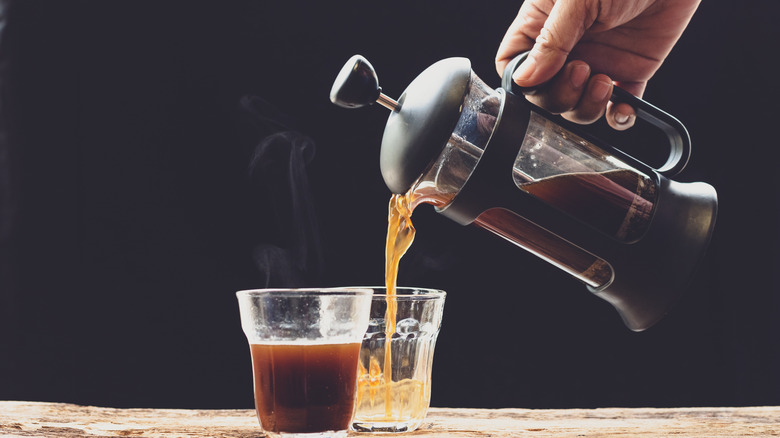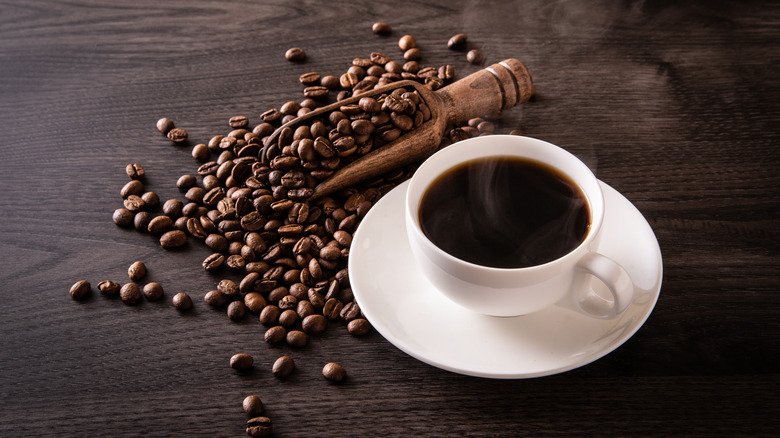Your Coffee Cravings May Be Genetic
If you can't handle a day at the office without chugging an espresso, it may not just be a caffeine habit that's to blame: Your genetics could be behind your coffee cravings, according to a new study.
The University of South Australia just released a study that looked at 390,435 people and their coffee habits in addition to their cardio health and genetics. The results? People with high blood pressure, angina, and arrhythmia were actually less likely to drink coffee, or when they did, they made it a decaf (via the University of South Australia).
What that could indicate, according to lead researcher Elina Hyppönen, is that our genetics actively work to regulate our caffeine intake and keep us from drinking more than is healthy for us. "People drink coffee for all sorts of reasons—as a pick me up when they're feeling tired, because it tastes good, or simply because it's part of their daily routine," Hyppönen said in the study's press release. "But what we don't recognize is that people subconsciously self-regulate safe levels of caffeine based on how high their blood pressure is, and this is likely a result of a protective genetic mechanism."
Should you stop drinking coffee?
Research is mixed when it comes to the health benefits of coffee, even where heart health is concerned. Coffee itself isn't a problem, but chronic caffeine consumption can be: One study noted that caffeine can cause blood pressure to rise, and the sympathetic nervous system to become activated. Moderate coffee intake generally is considered fine for heart health, but if you do have cardiovascular issues, skip the extra-large triple-shot espresso in favor of a more moderate coffee size (via PubMed).
The American Heart Association (AHA) notes that moderate coffee intake has health benefits, from high antioxidant content to a lowered risk of type 2 diabetes, and in woman, potentially a lowered risk of coronary heart disease. But notice how it makes you feel, Penny Kris-Etherton, a nutrition professor, explained to the AHA. "Just pay attention to how you're feeling after consuming coffee. Get in sync with how your body's feeling."
This recent study shows that it's important to listen to your body. Hyppönen notes that if your urge to drink coffee suddenly decreases, honor that and order a decaf. "If your body is telling you not to drink that extra cup of coffee, there's likely a reason why. Listen to your body, it's more in tune with what your health than you may think," she added (via the University of South Australia).


